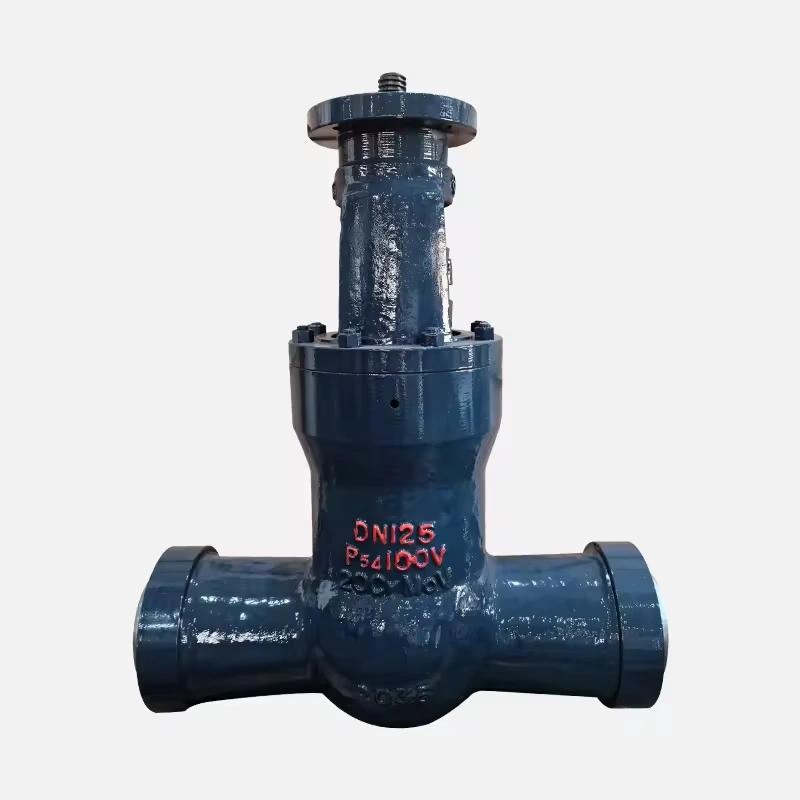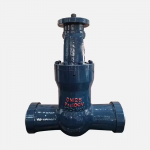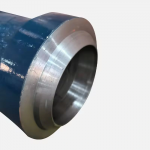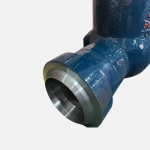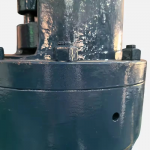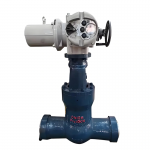Specification
|
Execution standards
|
APL, JIS, DIN, BS, ASTM, ANSI, GB, JB, NB, HG
|
|
Pressure range
|
Class150~Class2500Lb(PN16-PN420)
|
|
Size range
|
NPS1/2 “to NPS72” (DN15mm to DN1800mm)
|
|
Material scope Forgings
|
A105,F91.F11.F22,F5a, F6, LF1LC2,12Cr1MoV F36 F304.F316. F321H
|
|
Material scope Castings
|
WCB, LCB, LCC,WB36, WC6, C5, WC9, C12A,20CrMOV,CF8,CF8M,4A,5A,6
|
|
0perate Type
|
Manual, electric,pneumatic, gear
|
|
Valve type
|
Power station valves, gate valves, globe valves, checkvalves
|
|
Application
|
power plants,petrochemicals,refining, natural gasmetallurgy
|
|
Connection type
|
Flange, welding, thread, FM, BW, SW
|
|
Customization
|
OEM/ODM/OSM/OBM
|
Product Overview
High-Temperature and High-Pressure Power Station Gate Valve: TIANYU Self-Sealing Welded Gate Valve Professional Solution
I. Product Overview: Core Fluid Control Equipment for Harsh Conditions
II. Key Attribute Parameters: Comprehensive Technical Specifications
| Parameter Category | Technical Indicators |
|---|---|
| Nominal Diameter Range | NPS1/2″~NPS72″ (DN15~DN1800), covering micro to extra-large pipeline systems |
| Pressure Class | Class150~Class2500 (PN16~PN420), suitable for low to ultra-high pressure conditions |
| Execution Standards | API, JIS, DIN, BS, ASTM, ANSI, GB, etc., ensuring global project compatibility |
| Material System | – Forgings: A105, F91, F11, F22, 12Cr1MoV, F304/316 stainless steel, etc.; – Castings: WCB, WC6, WC9, CF8M, 20CrMoV, etc. |
| Operation Modes | Manual, electric, pneumatic, gear-driven, supporting DCS integration and on-site emergency operation |
| Connection Types | Butt Weld (BW), Flanged (RF/RTJ), Threaded, Socket Weld (SW), compliant with ANSI B16.25 welding standards |
| Temperature Range | Carbon steel ≤425℃, alloy steel ≤540℃, stainless steel ≤200℃ |
III. Core Features: Self-Sealing Technology & Condition Adaptability
-
Advantages of Self-Sealing Structure
The bonnet adopts a wedge-type self-sealing design, using medium pressure to push the gasket for dynamic compression—higher pressure enhances sealing reliability. Test data shows that under PN420 high pressure, the self-sealing structure has a leakage rate 90% lower than traditional flanges, reducing maintenance by eliminating frequent bolt tightening. -
Wide-Range Condition Adaptability
- Temperature Resistance: Material selection (e.g., F91 alloy) suits supercritical steam (540℃), while extended stems enable LNG cryogenic (-196℃) applications;
- Medium Compatibility: Stellite-alloy hardfaced sealing surfaces resist erosion, suitable for complex media like particle-laden steam and high-viscosity oil.
- Multi-Standard Compatibility & Welding Reliability
Valve face-to-face dimensions comply with ANSI B16.10 and JIS B2002; welding ends follow ANSI B16.25 groove requirements. RT radiography ensures weld quality, making them suitable for SHA-class high-pressure pipeline systems.
IV. Manufacturing Processes: Precision Control from Material to Finished Product
-
Raw Material Selection & Pretreatment
Forgings use electroslag remelting to control S/P content below 0.02%, inspected by ultrasonic testing (UT); castings adopt resin sand precision casting, annealed to eliminate internal stress, with material certificates tracing furnace numbers and mechanical property reports. -
Precision Machining & Sealing Surface Treatment
- Valve body sealing surfaces are machined by 5-axis CNC grinders with flatness error ≤0.01mm and roughness Ra≤0.8μm;
- Sealing surfaces use automatic plasma surfacing for Stellite alloy layers ≥3mm thick, hardness-tested (HRC58~62) for wear resistance.
- Full-Process Quality Control
- Pressure Testing: Each valve undergoes 1.5x design pressure shell strength testing (30-min hold) and 1.1x pressure sealing testing (15-min hold);
- Nondestructive Testing: 100% RT radiography for welds (Grade II qualified), 100% MT magnetic particle inspection for sealing surfaces to ensure defect-free delivery;
- Life Testing: Sampling for 5,000 on-off cycles to ensure sealing performance meets 20-year design life requirements for power stations.
Valve Details
V. Product Advantages: Core Competitiveness in Industrial Applications
-
High-Reliability Sealing Performance
In a 600MW power station main steam pipeline project, the valve operated leak-free for 10 years, exceeding the industry average replacement cycle (5~7 years) and reducing maintenance costs by 30%. -
Customized Solution Capabilities
- Material Customization: Sulfur-resistant materials (e.g., LC2) with H2S stress corrosion testing for sour gas scenarios;
- Functional Integration: Electric actuators and smart positioners with 4~20mA feedback for power station DCS systems;
- Structural Optimization: Seismic-designed valve bodies for nuclear plants, passing 1.5x earthquake load tests per GB 50267.
- Full-Cycle Service Support
- Delivery Capability: Standard models within 7 days; phased production for DN1000+ valves with negotiable lead times;
- After-Sales Support: 1-year warranty, on-site training for overseas projects, 24/7 technical support.
Application
VI. Application Fields: Solutions for Key Conditions in Multiple Industries
- Power Industry: Supercritical unit main steam valves, boiler feedwater valves, turbine bypass intercept valves;
- Petrochemical Industry: High-pressure feed valves for hydrocracking units, quench oil valves for ethylene cracking furnaces;
- Metallurgy & Steel: Blast furnace gas pressure reducing valve groups, high-pressure cutoff valves for rolling mill hydraulic systems;
- Energy Extraction: High-pressure intercept valves for shale gas gathering pipelines, offshore platform wellhead devices;
- Nuclear Sector: Main steam valves for nuclear power plant secondary circuits, containment isolation valves (custom certification required).
RELATED
-

High Temperature/Pressure 304 Stainless Steel Resistant Manual Power Forged Three Piece Flanged Floating Ball Valve
TIANYU 304 Stainless Steel Flanged Floating Ball Valve: Corrosion-Resistant Full-Port Flow Control Solution for Industrial, Sanitary, and Municipal Me…
BALL VALVE 11/03/2025 -

API ANSI 2in-16in DN50-DN400 PN10 PN16 CF8M Pneumatic Flanged Floating Ball Valve
TIANYU CF8M Pneumatic Flanged Floating Ball Valve: 2in-16in (DN50-DN400) PN10-PN16 API/ANSI Class Corrosion-Resistant Flow Control Solution for Indust…
BALL VALVE 11/01/2025 -

Large-Diameter DN1400 CLASS150 WCB SS Triple Eccentric Metal-Sealed Hard Seal Butterfly Valve
TIANYU DN1400 (56″) CLASS 150 WCB Hard Seal Butterfly Valve: Triple Eccentric Metal-Sealed Flanged Valve for Large-Diameter Industrial Media wit…
BUTTERFLY VALVE 10/30/2025 -

PN16 Stainless Steel Floating Ball Valve: Full Port 2PC Flange-Connected Valve with Fire-Safe & Anti-Static SS Ball Valve
TIANYU Stainless Steel Floating Ball Valve: Full Port 2PC Flange-Connected Valve with Fire-Safe & Anti-Static Design for Oil, Gas, and Industrial …
BALL VALVE 10/29/2025 -

High-Performance DN80 Class 150 WCB Soft-Sealed Lug-Type Double Eccentric Butterfly Valve
TIANYU 3” Class 150 WCB lug-type double eccentric butterfly valve is a technologically advanced flow control device engineered to address the challeng…
BUTTERFLY VALVE 10/25/2025 -

DN125 PN16 CF8M Stainless Steel Lug-Type Butterfly Valve with PTFE Lining Concentric Line Butterfly Valves
TIANYU DN125 PN16 CF8M stainless steel lug-type butterfly valve is a precision-engineered flow control device designed to address the challenges of ha…
BUTTERFLY VALVE 10/25/2025


